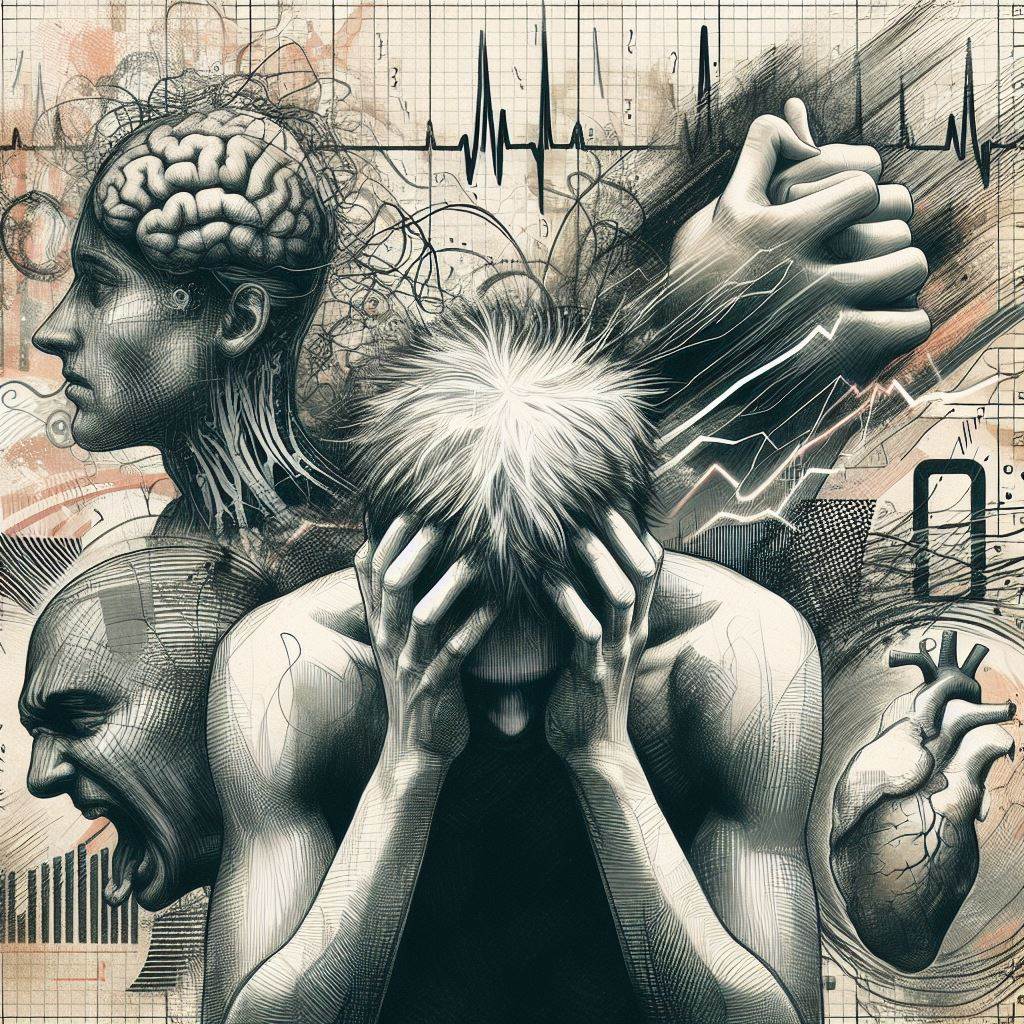Anxiety disorders affect millions of people worldwide, manifesting in various forms and intensities. Recognizing anxiety disorder symptoms is crucial for timely intervention and effective management. This article aims to provide insights into the common symptoms of anxiety disorders, their impact, and coping strategies.
Defining Anxiety Disorders
Anxiety disorders encompass a range of mental health conditions characterized by persistent feelings of fear, worry, and apprehension. These feelings can be overwhelming, interfering with daily life activities, relationships, and overall well-being.
Types of Anxiety Disorders
- Generalized Anxiety Disorder (GAD): Individuals with GAD experience excessive worry and anxiety about various aspects of life, often without a specific trigger.
- Panic Disorder: This involves recurrent, unexpected panic attacks accompanied by intense physical symptoms such as chest pain, heart palpitations, and shortness of breath.
- Social Anxiety Disorder: People with social anxiety experience fear and avoidance of social situations due to the fear of being judged or embarrassed.
- Phobias: Phobias are irrational fears of specific objects, situations, or activities, leading to avoidance behaviors.
Common Symptoms of Anxiety Disorders
Physical Symptoms
- Muscle tension: Persistent muscle tension and bodily discomfort.
- Fatigue: Feeling tired or exhausted despite adequate rest.
- Gastrointestinal issues: Nausea, stomach pain, or diarrhea.
- Increased heart rate: Palpitations and rapid heartbeat.
- Sweating: Excessive sweating, especially during anxiety-provoking situations.
Psychological Symptoms
- Excessive worry: Constant worrying about future events or potential outcomes.
- Irritability: Feeling easily annoyed or agitated.
- Difficulty concentrating: Inability to focus or maintain attention.
- Sleep disturbances: Trouble falling asleep or staying asleep.
Recognizing Anxiety Disorder Symptoms
Behavioral Signs
- Avoidance: Avoiding situations or activities that trigger anxiety.
- Procrastination: Putting off tasks due to fear or worry.
- Restlessness: Feeling on edge or unable to relax.
Emotional Signs
- Fear: Intense fear or dread without a clear cause.
- Nervousness: Feeling jittery or on edge.
- Sense of impending doom: Persistent feeling that something bad is about to happen.
Impact on Daily Life and Functioning
Anxiety disorders can significantly impair an individual’s ability to function in various areas of life.
Work and School Performance
- Decreased productivity: Difficulty concentrating and completing tasks.
- Absenteeism: Missing work or school due to anxiety symptoms.
- Interpersonal difficulties: Strained relationships with colleagues or classmates.
Relationships
- Isolation: Withdrawing from social interactions due to fear or discomfort.
- Conflict: Increased tension and conflicts within relationships.
- Dependency: Relying on others for reassurance or support.
Seeking Help and Diagnosis
Importance of Professional Evaluation
- Comprehensive assessment: Evaluation by a mental health professional to determine the presence and severity of anxiety disorders.
- Diagnostic criteria: Meeting specific criteria outlined in the Diagnostic and Statistical Manual of Mental Disorders (DSM-5).
Treatment Options
- Psychotherapy: Cognitive-behavioral therapy (CBT), exposure therapy, and mindfulness-based interventions.
- Medication: Antidepressants, benzodiazepines, and beta-blockers may be prescribed to alleviate symptoms.
Self-Help Strategies for Managing Anxiety
Relaxation Techniques
- Deep breathing: Practicing diaphragmatic breathing to calm the body and mind.
- Progressive muscle relaxation: Tensing and relaxing different muscle groups to reduce tension.
Mindfulness and Meditation
- Mindfulness exercises: Cultivating present-moment awareness to reduce anxiety.
- Guided meditation: Using audio or visual resources to facilitate relaxation and stress relief.
Conclusion
Understanding anxiety disorder symptoms is the first step towards effective management and recovery. By recognizing the signs and seeking appropriate support, individuals can learn to cope with anxiety and improve their overall quality of life.
Unique FAQs
- How do I know if I have an anxiety disorder or just normal stress?It’s essential to consider the severity and persistence of your symptoms. If your anxiety significantly impacts your daily life and functioning, it may be indicative of an anxiety disorder.
- Can anxiety disorders develop suddenly, or do they usually develop over time?While some individuals may experience a sudden onset of anxiety symptoms, anxiety disorders typically develop gradually, often influenced by various factors such as genetics, environment, and life experiences.
- Are there any natural remedies for managing anxiety?Some natural remedies, such as herbal supplements, yoga, and aromatherapy, may help alleviate anxiety symptoms for some individuals. However, it’s essential to consult with a healthcare professional before trying any new treatment approach.
- Is it possible to overcome anxiety disorders without medication?While medication can be beneficial for managing anxiety symptoms, many individuals find relief through psychotherapy, lifestyle modifications, and self-help strategies. The most effective approach may vary depending on the individual and the severity of their symptoms.
- Can anxiety disorders affect children and adolescents?Yes, anxiety disorders can affect individuals of all ages, including children and adolescents. Early intervention and support are crucial for managing anxiety disorders in young people and promoting their overall well-being.

